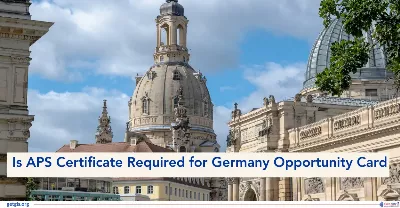Canada Visa Rejection Reasons in 2026: For PR, Students, and Travelers
Updated On
-
Copy link
Want to know the Canada visa rejection reasons in 2026? From incomplete documents and weak financial proof to medical issues and eligibility gaps, learn what can cause your application to be denied.
Limited-time offer : Access a free 10-Day IELTS study plan curated for you

Table of Contents
- 20 Common Canada Visa Rejection Reasons
- Canada Visa Rejection Reasons: For Different Visas in Canada
- Medical Reasons for Visa Rejection Canada
- How to Know the Reason for Canada Visa Rejection?
- How Can You Avoid Getting Your Canada Visa Rejected?
- What to Do if a Canada Student Visa is Rejected?
- Immigrate To Your Dream Destination with GetGIS!
Canada visa applications can sometimes be tricky, and understanding the common pitfalls is important. In 2026, many applicants face rejection due to incomplete documents, eligibility issues, or errors in their forms. Knowing these reasons can save time and effort.
For Indian applicants, visa rejections often happen because of missing financial proof, unclear travel intentions, or low documentation quality. Other factors, like inconsistencies in application or past travel history, can also play a role. Let’s explore all the main Canada visa rejection reasons in 2026 in this blog.
20 Common Canada Visa Rejection Reasons
What are the Reasons for Canada Visa Rejection? Visa applications can face cancellation or refusals by the Canadian government if criteria are not met. Failure to adhere to these requirements often leads to visa rejection in Canada.
Here are some commonly encountered reasons of visa rejection for Canada, which applicants should be aware of and avoid to improve the chances of a successful visa application.
- Insufficient Proof of Funds: Applicants must demonstrate they have sufficient proof of funds for Canada to cover their travel and stay. The required amount varies based on the Visa type length of stay and number of dependents
- Unclear Source of Funds: The Canadian government scrutinizes how the applicant has acquired their funds to ensure legitimacy and failure to provide the required documents and justification could lead to Canada visa rejection reasons.
- Limited Travel History: Applicants who have not travelled outside their country might face challenges, as prior travel history often strengthens an application.
- Weak Employment Prospects in Home Country: Applicants mainly from countries with significantly lower salaries than Canada might be considered at risk of overstaying as they might lack strong incentives to return home.
- Unstable Employment Status: A lack of stable employment might negatively impact visa approval in Canada, depending on the type of visa you applied for.
- Incomplete Supporting Documents: Providing all the necessary documents, even if not explicitly listed on the application checklist, is crucial for a successful visa application process.
- Lack of Family Ties: Not having immediate family members in the home country could raise concerns about the applicant's likelihood of returning.
- Unclear Purpose of Visit: Many a times applicants fail to provide a strong justification for the trip which could lead to visa rejection
- Extended Length of Stay: Applicants for longer stays would typically require proof Financial resources to support their duration
- Inadequate Explanation of Travel Plans: Applicants must clearly state the reason for travel and the intended duration of their stay
- Lack of Personal Assets: Sometime the absence of significant assets such as property or business could weaken ties to home country create a doubt on applicant’s intention to return back
- Sponsors Financial Situation: If applicants provide insufficient financial documentation from the host or sponsor in Canada this could also contribute to your Canada visa denial.
- Suspicious or Inauthentic Documents: Submitting documents that appear fake or altered can lead to refusal and also damage the applicants credibility for future application process
- History of Overstaying or Deportation: Any previous violations, such as overstaying a visa or deportation in Canada or other countries, could lower your approval chances
- Illegal Residency Status Applicants: Applicants residing illegally in another country are less likely to gain approval as it raises doubts about their adherence to Canadian loss
- Criminal Record: Applicants with a criminal history might face challenges. However, depending on the severity and timing of the offence, they may still be eligible to apply
- Medical Concerns: Applicants with certain health conditions that pose a risk to public safety and health or ones likely to be a burden on healthcare system in Canada can result in refusal Next slide
- Doubtful Intentions of the Applicant: Visa officers might reject applications if they suspect the applicants intentions are inconsistent or any such similar inconsistencies in their applications
- Misinterpretation: Providing false or misleading information could result in application refusal. And in some cases, a ban or reapplying.
- Human Rights Violations: Applicants involved in human rights abuses such as military persons from countries accused of war crimes may face inadmissibility unless they can provide supporting documents to address these concerns
Also Read: Best Ways to Immigrate to Canada from India in 2026
Canada Visa Rejection Reasons: For Different Visas in Canada
In 2024, the rejection rate for Canada PR visa and other immigration streams including the student and visitor visas witnessed a rise. On an average 3,737 Canada visa applications were denied on a monthly basis in the first 7 months of 2024 (quoting a 20% YoY increase). In July alone over 5,800 visas were rejected, the highest so far monthly figure since January 2019.
The reasons for visa rejection in Canada can be attributed to various factors. After careful examination, we have listed a few reasons that have emerged as the most significant ones based on your Canada visa types
1. Canada PR Visa Rejection Reasons
The main of top 5 reasons for rejection of Canada PR visa include the following:
- Incomplete of Incorrect Documentation: Missing, outdated, or incorrectly filled documents can lead to immediate rejection. Common errors include discrepancies in work experience certificate, employment letters, or proof of funds.
- Ineligibility for Selected Program: if applicants apply for ineligible programs, despite meeting the criteria for other immigration streams, could lead to visa refusal, majorly in competitive pathways like Express Entry.
- Low CRS Score: For Express Entry applicant failing to meet minimum CRS score for Canada PR draws could lead to application refusal.
- Inadequate Proof of Financial Support: Applicants must demonstrate sufficient funds to support themselves and their family in Canada. Failure to meet the criteria could result in visa refusal.
- Medical or Character Inadmissibility: A criminal history or failing to meet health requirements can lead to application refusals.
2. Reasons for Canada Visitor Visa Rejection
The main reasons for Canada Visitor Visa rejection or refusal includes the following:
- Insufficient Ties to Home Country: The authorities may doubt your intention to return home after the visit.
- Inadequate Financial Support: Failing to demonstrate the ability to cover expenses during your stay.
- Incomplete or Incorrect Documentation: Submitting incomplete or inaccurate application forms and supporting documents.
- Travel History or Security Concerns: Past visa violations, criminal records, or security-related issues may lead to rejection.
Ensuring strong ties to your home country, providing accurate documentation, and addressing any security concerns are essential to increase the chances of approval.
3. Reasons for Canada Work Permit Visa Rejection
The main reasons for the Canada work permit visa rejection include the following:
- Inadequate or Incorrect Documentation: Submitting incomplete or inaccurate application forms and supporting documents.
- Insufficient Work Experience or Qualifications: Failing to meet the specific job requirements or qualifications for the intended position.
- Lack of Proof of Job Offer: Inability to provide a valid job offer from a Canadian employer.
- Ineligibility for Programs: Applying for the wrong work permit category or program for one's situation.
4. Canada Student Visa Rejection Reasons
Getting a Canada student visa requires careful preparation, but many applicants face rejection due to common mistakes. Below are some of the common reasons for student visa rejections in Canada
- Incomplete or Incorrect Documents: Submitting missing, outdated, or incorrectly filled forms is a major reason for rejection. Ensure all transcripts, admission letters, and financial documents are accurate and complete.
- Insufficient Financial Proof: Canada requires proof that you can cover tuition, living expenses, and other costs. If your funds are unclear or inadequate, the visa may be denied.
- Low Ties to Home Country: Applicants must show strong reasons to return home after studies. Weak evidence of family, property, or job connections can lead to rejection.
- Poor Academic Background or Eligibility: If your academic records or chosen program don’t meet Canadian requirements, the visa officer may deny the application.
- Inconsistent or Misleading Information: Any discrepancies between your application, documents, or statements can cause doubts about credibility, leading to rejection.
- Past Visa or Immigration Issues: Previous visa refusals, overstays, or violations in any country can negatively affect your application.
- Language Proficiency Issues: Inadequate IELTS, TOEFL, or other language test scores can be a reason if they don’t meet the program’s requirements.
Also Read: Ways for Immigration to Canada After 45
5. Reasons for Canada Spouse Visa Rejection
Common reasons for the rejection of a Canada spouse visa application include insufficient financial support, inadequate proof of a genuine relationship, incomplete documentation, and discrepancies in the information provided.
To improve the chances of approval, ensure all requirements are met, provide thorough evidence of the relationship, and maintain transparency in your application. Seeking legal advice can be beneficial in complex cases.
6. Reasons for Canada SPP Visa Rejection
Common Canada SPP visa rejection reasons include insufficient financial support, inadequate academic qualifications, language proficiency issues, and a lack of genuine study intent.
It's essential to provide complete and accurate documentation, demonstrate strong ties to your home country, and maintain compliance with visa regulations to improve your chances of approval. Consulting with experts and carefully following application guidelines is advisable.
Have a look: SPP Colleges in Canada
Medical Reasons for Visa Rejection Canada
Medical exams are an essential part of the Canadian visa process to ensure applicants do not pose health risks. Failing to meet Canada’s health standards can lead to visa denial even if all other requirements are complete.
- Contagious or Severe Illnesses: Applicants with serious communicable diseases, such as tuberculosis, may be refused to prevent public health risks.
- Medical Conditions Requiring Excessive Care: If a health condition is likely to demand significant medical treatment or resources in Canada, the visa may be denied.
- Incomplete or Missing Medical Reports: Failing to provide full medical documentation or missing required medical exams can result in rejection.
- Non-Compliance During Medical Exam: Not following instructions during medical assessments, such as refusing tests or providing inaccurate information, can lead to denial.
- Mental Health Concerns Affecting Public Safety: Severe mental health conditions that may pose a risk to self or others could be a reason for refusal.
Also Read: Medical Tests For Canada PR in 2026
How to Know the Reason for Canada Visa Rejection?
Now that you have successfully identified the top Canada visa rejection reasons, let us also learn how to know the reasons for your Canada visa refusal. These include:
- Review the Rejection Letter: After your visa application is rejected, Canadian immigration authorities will send you a rejection letter. This letter typically outlines the specific reason(s) for the rejection. Carefully review the letter to understand why your application was not approved.
- Consult the Local Visa Application Center (VAC): You can contact the local Visa Application Center or the Canadian embassy or consulate in your home country to seek clarification and assistance in understanding the rejection reasons. They may provide additional insights or guidance.
- Seek Legal Advice: If the rejection reasons are unclear or you believe there has been an error, consider consulting an immigration attorney or experts. They can help you review your application and assess whether there are grounds for appeal.
- Reapply After Addressing Issues: After identifying the reasons for rejection, you can work on addressing the issues. This might include providing additional documentation, clarifying information, or improving your application. Once the issues are resolved, you can reapply.
It's important to learn from the reasons for rejection and take steps to rectify them before reapplying. Understanding the specific grounds for rejection is crucial for a successful visa application in the future.
How Can You Avoid Getting Your Canada Visa Rejected?
There are a few steps you could ensure to avoid getting your Canada visa rejected when applying to study in Canada.
- Make sure you meet all the eligibility requirements for a study permit.
- Complete your application correctly and include all required supporting documents.
- Submit your application well in advance of your planned departure date.
- Be prepared to demonstrate to the visa officer that you have ties to your home country and intend to return there after completing your studies in Canada
What to Do if a Canada Student Visa is Rejected?
If your study permit application is rejected, it's not necessarily the end of your dream to study in Canada. You can take the following steps to appeal for Canada visa rejection reasons.
a. Request GCMS Notes
Ask for the visa officer's notes, known as Global Case Management System (GCMS) notes, to understand the reasons for rejection.
Note: Non-residents should hire a Canadian immigration consultant to obtain these notes, a process that may take up to 60 days.
b. Assess Reasons for Rejection
- Review the GCMS notes to determine the validity of the rejection.
- Evaluate if the rejection was due to issues like incomplete documentation or insufficient financial proof.
c. Reapply for a Study Permit
- Address any deficiencies in your initial application.
- Consider deferring studies by a semester to allow time for reapplication and visa processing.
- Seek guidance from a Registered Canadian Immigration Consultant (RCIC) if needed.
d. Judicial Review
- If the rejection seems unjust, consider requesting a review by the Federal Court.
- Hire an immigration lawyer authorized to practice law in Canada.
- Note: The Federal Court reviews only select cases, making this a last resort.
e. Withdraw Acceptance
- If your study permit was rightfully rejected, and you can't rectify the issues, consider declining admission.
- Inquire about any administration fees deducted by the Designated Learning Institution (DLI) before refunding tuition fees.
- Arrange for a refund of any Guaranteed Investment Certificate (GIC) used for financial proof.
Securing a study permit is crucial for studying in Canada. Despite potential setbacks, you can navigate the situation by understanding the reasons for rejection and taking appropriate action, whether it's reapplying, seeking a review, or withdrawing acceptance.
Also Explore: What is GIC Canada for International Students
Immigrate To Your Dream Destination with GetGIS!
Understanding the common Canada visa rejection reasons is the first steps towards avoiding costly mistakes in your application process. From incomplete documentation to weak ties to your home country, each factor plays an important role to boost your chances of approval.
Alternatively, it is also essential to seek guidance from immigration partners like GetGIS. Our team ensures to offer personalized Canada PR visa consultation services to help you navigate complex requirements with confidence. Don't leave your future to chance, reach out to our Canada PR assistance team and make your immigration dream a reality.
Useful Links:
Limited-time offer : Access a free 10-Day IELTS study plan curated for you

Frequently Asked Questions
How can I avoid Canada student visa rejection?
- Submit all the required paperwork
- Make sure the college you have applied for is on the DLI list
- Choose your course of study wisely
- Provide proof of having sufficient fund.
Can I reapply for a Canada visa after a rejection?
Is there an appeal process for a Canada visa rejection?
How long do I have to wait to reapply after a visa rejection?
Can I get a refund of the application fee if my visa is rejected?
Do I need to disclose a previous Canada visa rejection on a new application?





